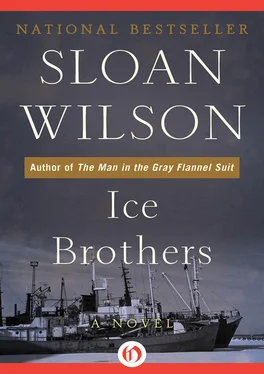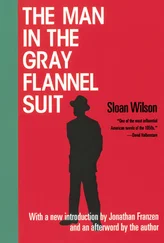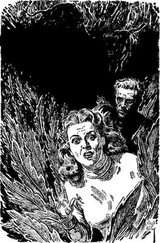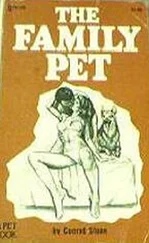“We’re doing everything we can,” he said. “You better go down and get some rest yourself.”
“But they’re all burned, so terrible burned,” Seth said. “Can’t you help?”
“Jesus, what the hell do you want me to do? Go and lie down before you pass out.”
Seth wandered dazedly toward the well deck. A moment later Paul saw him helping Flags carry an inert body to the forecastle.
Paul went to the bridge to warm up and stood at a port where he could watch Guns and his men circle the wreckage, pausing at every hole. Then he went to his chart and methodically charted a course to Angmagssalik. He felt dizzy and was confused by the fact that he really felt no emotions at a time when everyone else seemed so excited. He just felt half-dead. His hands were so heavy he could barely handle the parallel rules. I’m in shock too, he thought dully. I have to compensate for that. I’m one person who can’t crap out now. Suddenly he felt a surge of irrational anger at the Germans. What right did they have to swarm aboard his ship begging mercy and turning it into chaos? It would not really be difficult for him to order them all thrown ashore or even overboard, to rid the vessel of them, cleanse the ship and release his crew from this awful mess. He knew he should feel guilty for even thinking of this, but he was too tired.
Suddenly he felt sick and went to the head to vomit. After that, still feeling nauseated and weak, he went to the wardroom, where he found Nathan surrounded by more wounded men who sat huddled with blankets over their shoulders. The bunks were full of motionless bodies. Nathan was applying a tourniquet to a man on the table whose thigh was gushing blood.
“Seth just died,” he said.
“ What? ”
“Heart. Nothing can be done. We got to get these men ashore as soon as we can. You better get everyone aboard and get under way.”
Paul went back to the bridge. Guns and his men were still prowling through the ruins ashore. They were digging at the foot of a charred mound. When Paul gave five short blasts of the Arluk ’s whistle and motioned to them from the wing of the bridge they came trotting back toward the ship. Guns carried a bulging seabag on his shoulder, and their bodies were hung with German rifles.
Paul watched them dully as they jumped aboard the ship. Guns went to the galley and a few minutes went by before he came to the bridge. “No one alive is left in there that we can see,” he said. “Plenty of bodies — the bastards didn’t all get away.”
“Good,” Paul said dully.
“Look what I got,” Guns said, and from his pocket took his olive bottle, which he had filled. When he held it out, Paul at first did not notice its contents. Then he took his pistol from his holster and brought the barrel of it down on the big man’s wrist so hard that Guns screamed. The olive bottle dropped to the deck, but did not break. It rolled into a scupper. Squinting his eyes to avoid looking at its grisly contents, Paul picked it up and threw it overboard.
“You can’t do that,” Guns said, holding his wrist against his stomach. “It’s mine—”
“Get below,” Paul said.
“You’re not going to take my head,” Guns said. “Nobody’s going to …”
He ran toward the forecastle. For a moment Paul was too bewildered to understand what was happening. Then he followed him, too tired and disgusted to hurry. When he got to the galley he found Guns standing with three other men staring into a huge pot that was already steaming on the stove.
“Throw that thing overboard,” Paul said.
Instead Guns grabbed the pot and ran toward the door, except it was so hot that he dropped it in the forecastle. Gray water and a cloud of steam spilled out, together with a head, which lay on its right ear. The open eyes, the gaping mouth and the stump of the neck had already been boiled colorless. Guns scooped it up, and holding it under his right arm like a football broke through the encircling men and dashed to the deck. Paul followed in time to see him jump ashore.
“ Boats, ” Paul called. “Take some men and bring him back.”
Boats, followed by a half dozen seamen, went in hot pursuit. Paul went to the wing of the bridge and stood watching them zig-zag through the charred ruins, like men playing football. His sensibilities were still too dulled for him to feel much. The fact that Guns was running with a head under his arm did not seem a great deal more surprising than any other part of what had overwhelmed him here …
Finally Boats tackled Guns and the other men piled on top of them. Slowly they stood up, leaving the head on the ground. Two men were holding Guns’s arms, and he was shouting, “Goddamn it, let me go, what’s the matter with you bastards—?”
“What do you want us to do with … this?” Boats called to Paul.
For a moment Paul wondered whether he should hold a funeral service for the head. Should he bury it at sea, rolling it off a plank? And how about the rest of the body and all the other corpses in those black ruins? Clouds of scavenger seagulls were already circling around, waiting for the smoke to clear. No doubt he should bury the bodies and read some words from the Bible, but it was more important to care for the wounded and to guard the prisoners. All his men were so exhausted that they hardly had strength even for that. “Leave it there,” Paul said. “Bring Guns back aboard.”
Guns appeared perfectly normal by the time the men let go of his arms. They walked aboard like a group of old friends. Guns came to the bridge.
“You don’t understand, skipper,” he said. “I promised Blake’s mother. I promised I’d make her a lamp.”
“You wrote her a letter?”
“Oh, I knew you’d censor that. But I promised her in my heart. I was going to take it home to her myself.”
Paul sighed. “I’m sorry, but mutilating corpses is … well, it’s against regulations. Lay below. Boats, pipe mooring stations. We’re going to get out of here.”
“Can’t I handle the bowline like always?” Guns asked.
“Yeah, okay, go to your mooring station. Let’s go. ”
While Paul was automatically giving orders to get the ship under way he wondered what he should do about Guns. If he logged the incident with the olive bottle and the head and brought charges he’d have to keep Guns a prisoner and eventually the man would be sent to a mental hospital in the States, maybe for a very long time. Everyone would be horrified by him, all the more so, perhaps, because he stood for a kind of ferocity that the war made many people feel but damn few wanted to admit. Somewhere Paul had read that soccer was an ancient game that had started when warriors celebrated a victory by kicking around the head of an enemy chief, and that football was a derivative of that. War had not really changed much — except now it involved so many people that it had to be prettied up. Paul wondered whether Guns really was crazy, so crazy that he shouldn’t be turned loose except in battle. He’d have to watch him, he decided wearily, he’d just have to watch him. He didn’t want to see the poor bastard get locked up in a place that was bound to make him crazier than he already was.…
When they worked their way into clear water Paul set a course for Angmagssalik. It was beginning to snow and he could see almost nothing. Only the dimly lit compass card and the glowing green eye of the radar screen made any sense.
To Paul and everyone else aboard the ship that three-and-a-half hour voyage seemed endless. Shock had the good effect of reducing emotion, but it also had the effect of making time appear to stand still. Paul stood on the bridge, concentrating on the simple task of conning the Arluk through widely scattered bergs as she churned north between the mountains and the ice floe. Before the moon came up there were only scattered stars to prick the darkness and he steered mostly by radar. On the well deck he could see dim shapes moving and realized that Boats was piling bodies under a tarpaulin there to make room in the bunks. When the moon climbed above the icy eastern horizon, he could see gulls wheeling all around the ship and wondered whether “those damned flying cats” could smell blood.
Читать дальше












